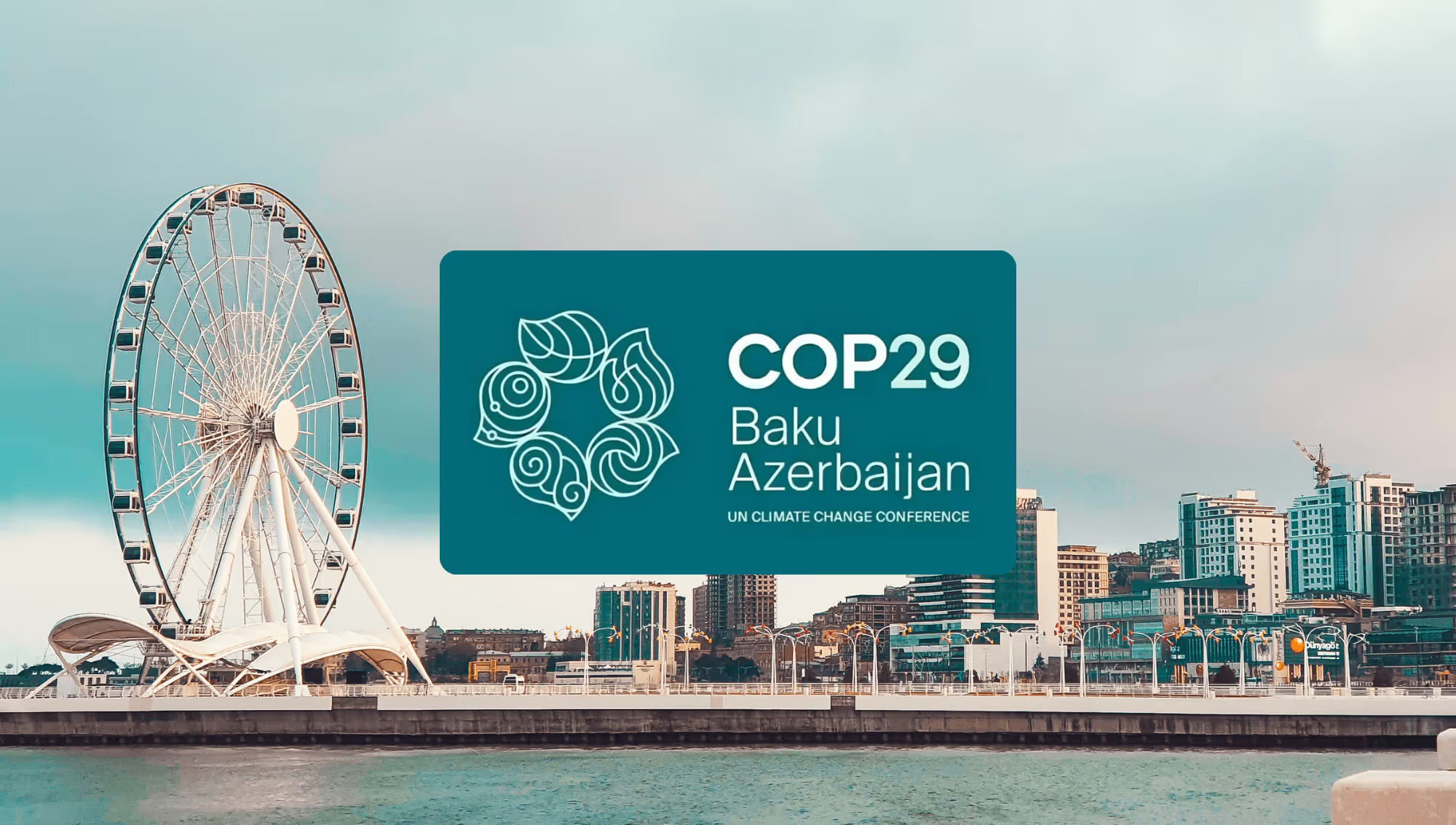The 29th Climate Conference of the Parties (COP29), which took place in Baku, Azerbaijan, in November 2024, took place in a context of an increasingly visible climate crisis.
With 2024 on track to become the hottest year on record, expectations were high.
In this article, you will find a summary of the main announcements, bottlenecks and our advice to contribute to the ecological transition.
On the finance side
A climate fund that falls well short of expectations
One of the focal points of COP29 was the issue of climate finance.
The countries agreed to mobilize $300 billion per year by 2035 to support developing nations in their fight against climate change and in adapting to the impacts that are already visible.
This amount remains well below the 1 trillion needed, according to the OECD, to meet global needs.
The call for private funding
To fill the lack of public funding, COP29 wants to mobilize private investments. This approach reflects the difficulty for states alone in responding to the magnitude of climate challenges.
Contributors unchanged since 1992
The list of contributing countries, based on the 1992 economic classification, has not been updated. This means that major nations such as China or the Gulf countries are not obliged to contribute.
However, discussions encouraged China to participate voluntarily, without any formal commitments being made.
To conclude, developing countries are disappointed, they consider this funding insufficient and not well suited to their needs.
The global carbon market is still unclear
Establishment of an international framework
The subject of the global carbon market is back on the table, it is supported by the United Nations, under Article 6.4 of the Paris Agreement.
This market will allow countries and companies to trade carbon credits to promote investments in low-CO₂ projects.
Ongoing concerns
Despite this announcement, several questions remain open, including:
- Governance of the system: who will ensure transparency and fairness?
- The methodologies to calculate carbon credits: detailed rules have yet to be defined.
All these uncertainties question the effectiveness and credibility of this market in the fight against global warming.
Focus on fossil fuels
A major geopolitical blockage
Discussions on the gradual reduction of the use of fossil fuels, oil, gas and coal have not been successful.
Deep divisions have emerged, in particular between:
- Countries rich in fossil resources, such as Azerbaijan, which fear a major economic impact.
- Nations in favor of accelerating the energy transition.
A deadline postponed to COP30
In the absence of consensus, the question of ambitions to reduce greenhouse gases was postponed to COP30, scheduled to take place in Brazil. Countries will have to come up with more concrete commitments in order to hope to make progress on this crucial issue.
How can SMEs and ETIs act?
For CSR managers, the results of COP29 should be an alert. If international commitments are delayed, businesses, including SMEs and mid-caps, have a key role to play. Here are some concrete actions:
1. Reducing their dependence on fossil fuels
- Conduct a carbon assessment to identify major sources of emissions.
- Invest in energy efficiency solutions or renewable energies.
2. Anticipating carbon markets
Even if the system can still be improved, businesses must be prepared to integrate the global carbon market in their strategy. This involves:
- Monitor developments in Article 6.4 and explore existing mechanisms such as national or regional certificates.
- The search for certified local or international projects to offset their emissions.
3. Communicate their commitments
In a context where consumer and partner expectations are high, it is essential to:
- Publish detailed and transparent CSR reports.
- Valuing sustainable initiatives among stakeholders.
Conclusion: COP29, a mixed event
COP29 allowed some symbolic advances, such as the establishment of a framework for a global carbon market. But she also highlighted the growing gap between the climate emergency and decisions taken at the international level.
Countries, and especially major economies, will have their work cut out to present concrete and ambitious commitments at COP30. In the meantime, businesses, communities and citizens are invited to continue their efforts to contribute to a sustainable transition, which is essential for the future of the planet.
Sourcing
Bon à savoir : Lorem ipsum dolor sit amet, consectetur adipiscing elit, sed do eiusmod tempor incididunt ut labore et dolore magna aliqua. Ut enim ad minim veniam, quis nostrud exercitation ullamco laboris nisi ut aliquip ex ea commodo consequat. Duis aute irure dolor in reprehenderit in voluptate velit esse cillum dolore eu fugiat nulla pariatur.


.avif)


